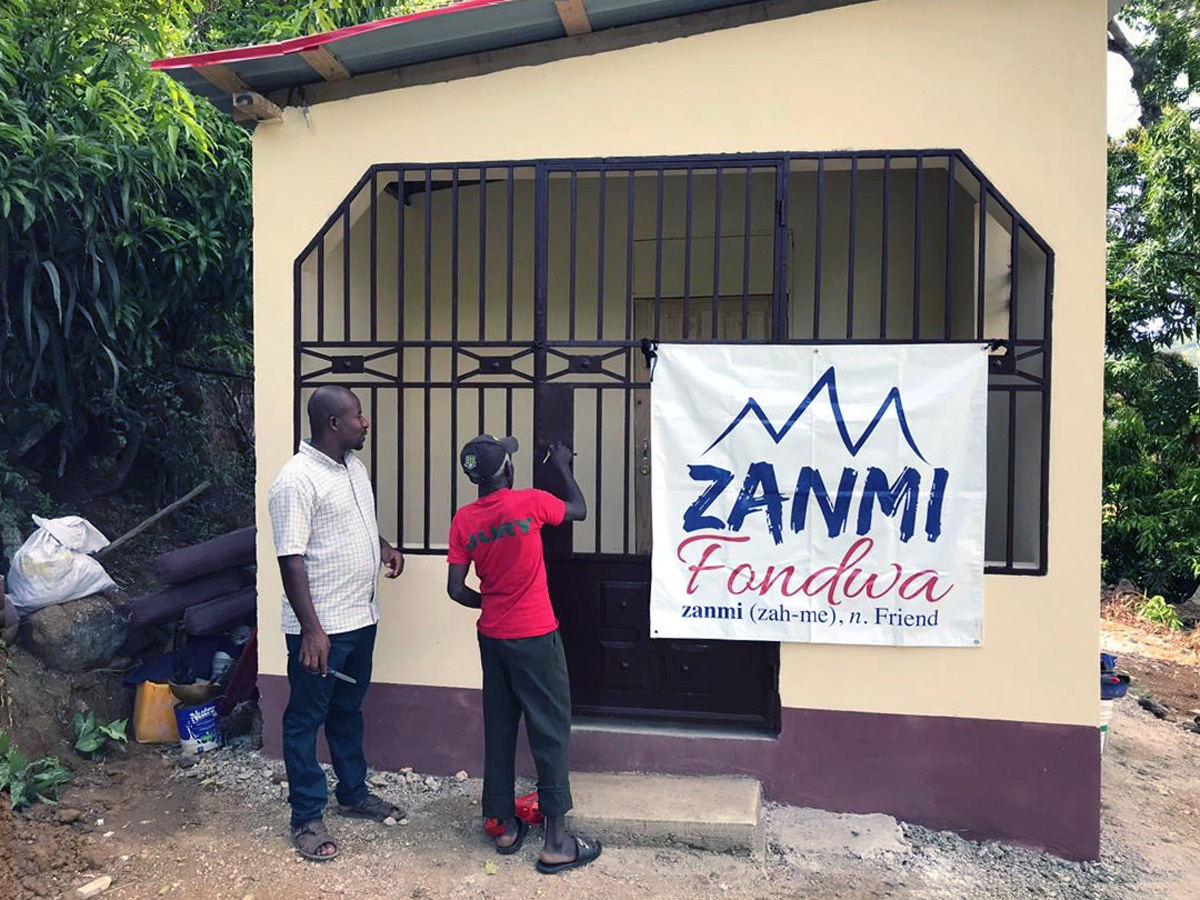Key points:
- Despite unrest in the country, a United Methodist couple’s charitable organization continues to help build homes for members of a rural, mountainous community.
- The Revs. David and Jamalyn Peigh Williamson, pastors in Indiana, founded Zanmi Fondwa after living in Haiti for two years.
- The 2010 earthquake put visits on hold, but the homebuilding has continued because Haitians are in charge of Zanmi Fondwa construction projects. Nearly 80 homes have been built so far, and more than 100 additional families are on a list for getting a home.
The U.S. State Department has strongly suggested that Americans stay out of Haiti because of violent crime, civil unrest and poor health care infrastructure.
But U.S. United Methodists are still in ministry with the people of Haiti.
“Violent crime, often involving the use of firearms, such as armed robbery, carjackings and kidnappings for ransom that include U.S. citizens are common,” warns a government website. “Protests, demonstrations, tire burning and roadblocks are frequent, unpredictable and can turn violent.”
Counter that with the words of the Rev. Jamalyn Peigh Williamson, who lived with her husband from 2003 to 2005 in the Caribbean nation. The couple have returned often as part of Zanmi Fondwa, their charitable organization that helps builds homes for Haitians.
“I am drawn to Haiti so much because there is a warmth and a hospitality that Haitians just naturally share,” Williamson said. “People we've taken on trips … really feel welcomed and loved. I think that's why it's so hard for me to see what's happening, because the photos and the images that come out of Haiti right now do not look like anything that I know.”
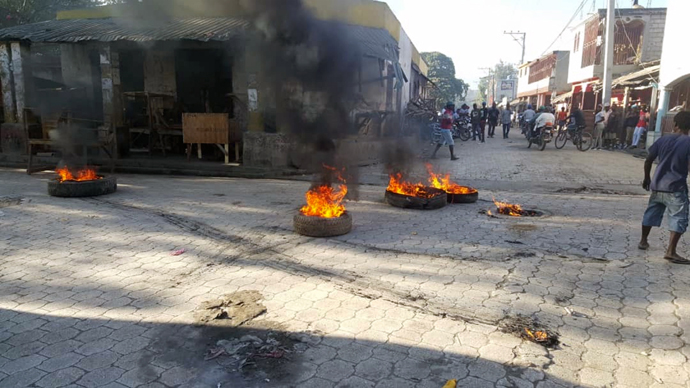
Haiti is in disarray after years of setbacks. President Jean-Bertrand Aristide, the country’s first democratically elected president, went into exile in 2004 after a violent rebellion. A series of natural disasters followed, including a tropical storm resulting in mudslides and flooding, three hurricanes since 2008 and a magnitude-7.0 earthquake in 2010, Haiti’s most severe quake in 200 years. Then, in 2021, President Jovenel Moïse was assassinated, and the situation became “incredibly tense,” Williamson said.
Gang violence and an outbreak of cholera have killed thousands of Haitians, and there are continuing shortages of food and medicine.
“I'm part of this group that says, ‘Can we please quit saying things in Haiti are so bad?’” Williamson said. “What we should be saying is things in Port-au-Prince are so bad,’” she said of the country’s capital. “Because it's not the whole country, it's that region, and people just lump it all together.”
Williamson is pastor of connections at Zionsville United Methodist Church in Zionsville, Indiana, where her husband, the Rev. David Williamson, is senior pastor.
They have been helping build homes for two decades in Fondwa, a rural, mountainous community in the southeastern part of the country, through Zanmi Fondwa. The Fondwa community has a population of about 9,000 over 10 square miles.
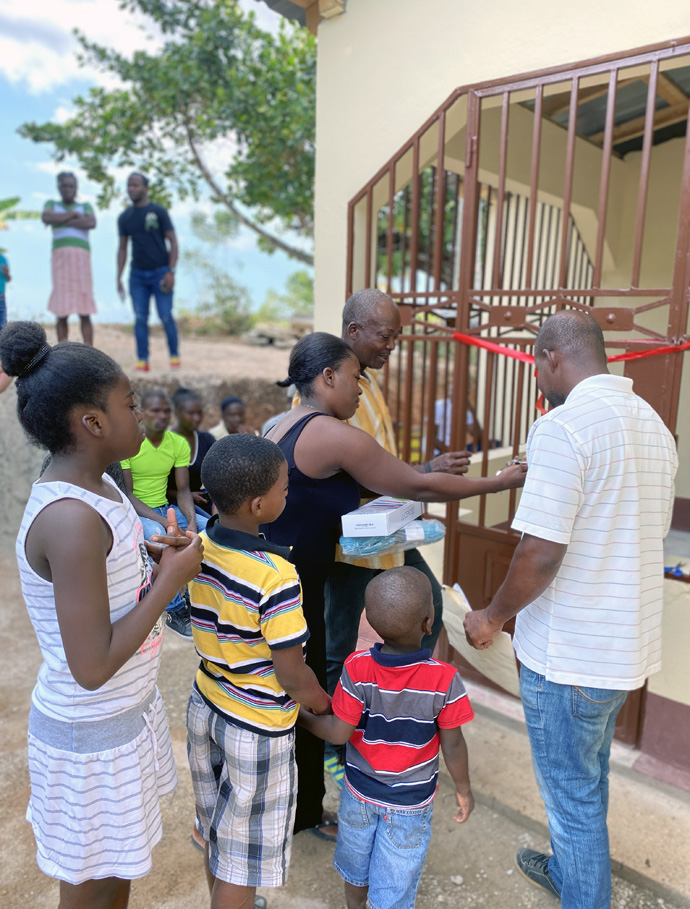
The 2010 earthquake put visits on hold, but the homebuilding has continued because Haitians are in charge of Zanmi Fondwa construction projects.
“Traffic is not working well,” said Luckner Raymond, a Haitian who is director of Haitian operations for Zanmi Fondwa. “Business (in Haiti) is not working well because of a lot of things. People keep fighting each other.”
Even before the earthquake, most Haitians lived in huts that leaked during the two annual rainy seasons and did not have electricity or indoor plumbing, said Sister Claudette Prevot, a Franciscan nun at the Sisters of St. Antoine of Fondwa, who helps run an orphanage, primary school, vocational school, medical clinic and women’s group in the area.
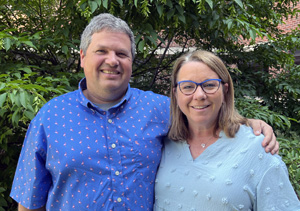
“Even before the earthquake, because they are very poor, they don't have money to build a house,” Prevot said. Now that some have leak-free homes, they “have to think about new dreams when you're not trying to clean up water.”
Zanmi Fondwa has built 78 homes, representing about one-third of its initial list of 217 families who need one. The new homes are leak-free and have indoor plumbing, but they do not have electricity, and residents need to haul water each day because there is no utilities service in Fondwa.
“They can fill the toilet with a bucket of water and flush it into a septic or shower with a bucket of water inside,” said Buffy Perkins, chief operations officer of Zanmi Fondwa. “You would have to have electricity in order to have a pump to run the water into the bathroom, and we aren't at that place yet. So we have done 78 water cisterns as well.”
The Williamsons met as students at Duke Divinity School and married in 2003. As part of a “Healing in the Third World” class at Duke, they spent a week in Haiti. Seven months after they married, they headed back and settled in Fondwa, where they made contacts that served as the foundation for Zanmi Fondwa, or Friends of Fondwa.
“Dave taught English in the (St. Antoine) school, and that's a huge key to this whole story, because Luckner was one of his top students,” Jamalyn Williamson said. “I did administrative work at the school.”
“When we first went to Haiti, we didn’t have this picture of … this is what we’re going to be doing 20 years later,” David Williamson said. “We didn’t realize it at the time, but we were planting seeds even then for what would eventually happen.”
Most of the core staff that they first hired were former students whom he had taught years before and with whom the couple had formed friendships. In a similar way, most of the early donor support they received came from the Indiana congregations that they had served. When they started taking people on mission trips to Haiti, they didn’t envision that 10 years later these same church members would be helping them fund a nonprofit.
“They became the people who came around us and made this dream come true,” David Williamson said.
All of the seeds that were planted along the way came together “to create this wonderful thing,” he said. “For me, I do see God’s hand in all that.”
Watch video
Fondwa doesn’t have a Methodist church, but after the 2010 earthquake, the Williamsons noticed The United Methodist Church’s logo on a number of newly built homes. They later learned that the United Methodist Committee on Relief had funded the construction of about 50 small homes in the community following the disaster.
Jamalyn Williamson was in Haiti during the earthquake. She wasn’t physically hurt but required a year of therapy to cope with post-traumatic stress disorder from the experience.
“I saw firsthand the destruction, and we just have so many friends and people (in Fondwa) we trust, so it was the first place that we thought we would start,” Jamalyn Williamson said. “When we started helping, they trusted us.”
The plan is to keep building homes in Fondwa until the need is met before moving to another community.
Because of unrest in Haiti, the Americans have not been on site since 2021. Fondwa is safe, but there is no reliable way to get from Port-au-Prince to Fondwa without passing through gang territory, David Williamson said.
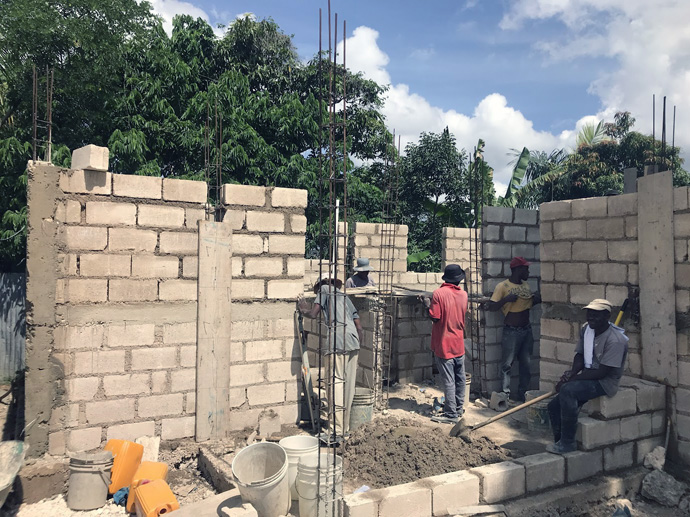
The homebuilding has not been affected because Haitians can do the work as long as they have the materials they need.
“Our organization is completely run in Haiti by Haitians,” Perkins said. “We just advise and have oversight of what they're doing. Day-to-day operations are completely in Luckner's hands. It's unique to many organizations working in aid.”
Most construction materials for the homes are purchased from Haitian businesses, which helps the businesses and eliminates the difficulties of importing products to Haiti.
How to help
“It's a win-win for everybody because the vendors are making money also,” Perkins said.
Zanmi Fondwa is the largest employer in Fondwa.
“We have about 125 employees that work for us directly or work for us through contract,” Jamalyn Williamson said.
Families who receive the homes are expected to contribute labor during construction and pay a reasonable amount toward the cost, although not nearly enough to actually pay for it. They take classes to learn how to properly clean and maintain the homes.
“We need to give them some instruction about how to lock the doors because they don't know how to use the lock,” Raymond said. “Before, when they go out, they need to put their money in their pocket because they think that if they leave the house without it, someone else can come to get the money.
“So, now life is changing.”
Prevot will be key in deciding the next community in which Zanmi Fondwa will build homes. Jamalyn Williamson said the charity will soon change its name to Project Rouge, named after the trademark red roofs of the homes they build.
“Sister Claudette really is the key for us moving to a new community because she's the spiritual director for Sisters of St. Antoine of Fondwa,” Jamalyn Williamson said. “They work outside of Fondwa, so we will probably move to a community where they are serving already because of that trust and dependability on how she knows the families.
“The key is the relationships down there. We focus first on relationships, and then we focus second on the work.”
Patterson is a UM News reporter in Nashville, Tennessee. Contact him at 615-742-5470 or newsdesk@umcom.org. To read more United Methodist news, subscribe to the free Daily or Weekly Digests.
Watch Video

